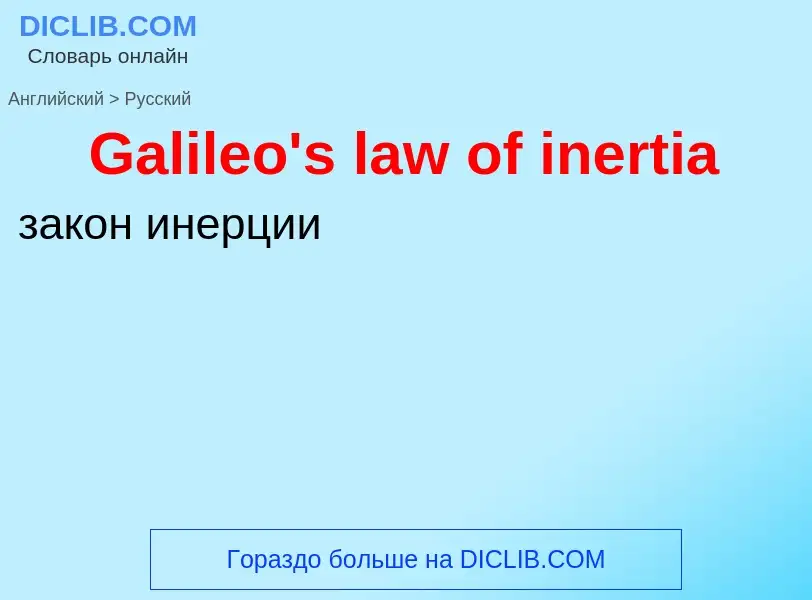Traducción y análisis de palabras por inteligencia artificial
En esta página puede obtener un análisis detallado de una palabra o frase, producido utilizando la mejor tecnología de inteligencia artificial hasta la fecha:
- cómo se usa la palabra
- frecuencia de uso
- se utiliza con más frecuencia en el habla oral o escrita
- opciones de traducción
- ejemplos de uso (varias frases con traducción)
- etimología
Galileo's law of inertia - traducción al ruso
Definición
Wikipedia
Inertia is the idea that an object will continue its current motion until some force causes its speed or direction to change. The term is properly understood as shorthand for "the principle of inertia" as described by Newton in his first law of motion.
After some other definitions, Newton states in his first law of motion:
LAW I. Every object perseveres in its state of rest, or of uniform motion in a right line, unless it is compelled to change that state by forces impressed thereon.
The word "perseveres" is a direct translation from Newton's Latin. Other, less forceful terms such as "to continue" or "to remain" are commonly found in modern textbooks. The modern use follows from some changes in Newton's original mechanics (as stated in the Principia) made by Euler, d'Alembert, and other Cartesians.
The term inertia comes from the Latin word iners, meaning idle, sluggish. The term inertia may also refer to the resistance of any physical object to a change in its velocity. This includes changes to the object's speed or direction of motion. An aspect of this property is the tendency of objects to keep moving in a straight line at a constant speed when no forces act upon them.
Inertia is one of the primary manifestations of mass, which is a quantitative property of physical systems.
In his monumental Philosophiæ Naturalis Principia Mathematica, Isaac Newton defined inertia as a force:
DEFINITION III. The vis insita, or innate force of matter, is a power of resisting by which every body, as much as in it lies, endeavours to persevere in its present state, whether it be of rest or of moving uniformly forward in a right line.
The principle of inertia is one of the fundamental principles in classical physics. It is still used today to describe the motion of objects and how they are affected by the applied forces on them.



